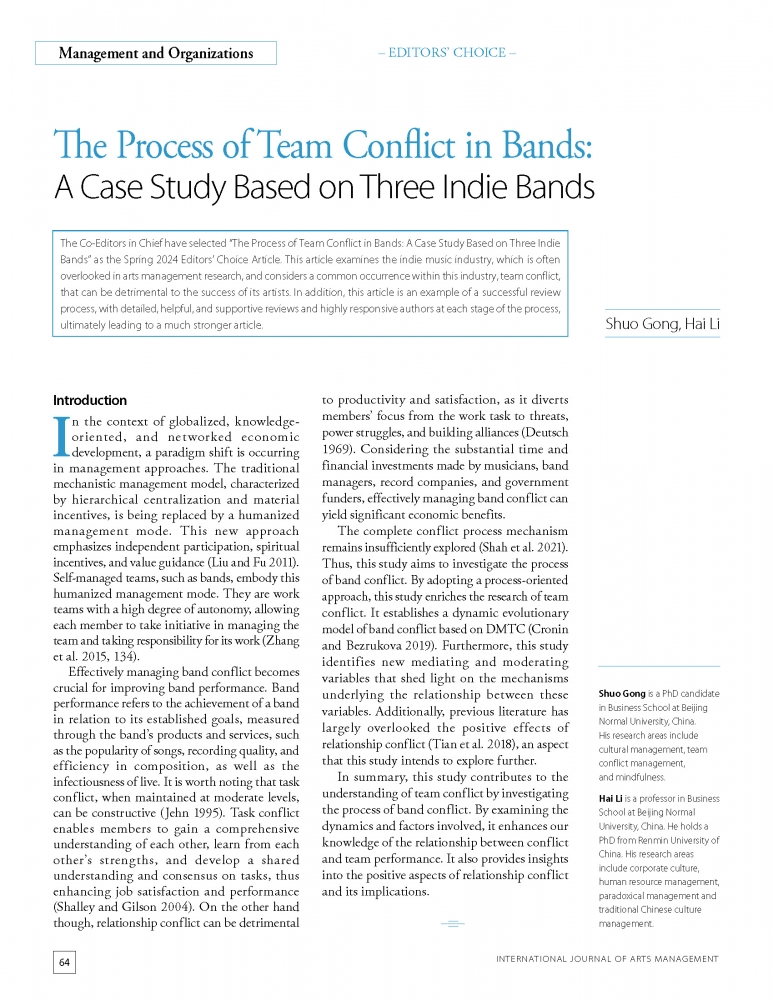The Process of Team Conflict in Bands: A Case Study Based on Three Indie Bands
Produit: Article
21,00 $ CA
(en anglais seulement)
EDITORS' CHOICE
Shuo Gong, Hai Li
Shuo Gong is a PhD candidate in Business School at Beijing Normal University, China. His research areas include cultural management, team conflict management, and mindfulness.
Hai Li is a professor in Business School at Beijing Normal University, China. He holds a PhD from Renmin University of China. His research areas include corporate culture, human resource management, paradoxical management and traditional Chinese culture management.
ABSTRACT
Team conflict exists as a process. However, the process of team conflict has not been fully revealed by current research. Based on the dynamic model of team conflict (DMTC), this study aims to shed light on the process of team conflict within indie bands through a qualitative analysis of cross cases (involving three indie bands). The findings indicate that the dynamic evolution of band conflict can be delineated into three key stages: generation, action, and feedback. Within the generation stage, member diversity, task interdependence, and task complexity each contribute uniquely to the emergence of band conflict. Subsequently, during the action stage, the intensity of band conflict exerts significant influence on band performance through both motivational and cognitive pathways. Lastly, at the feedback stage, band performance demonstrates reciprocal effects on the level of band conflict and the achievement motivation of band members. The study extends DMTC to the context of indie bands. In addition to the original version of DMTC, the study further examines the impact of task conflict on relationship conflict, the influence of team performance on team conflict, and the role of cognitive load in the process of team conflict.
KEYWORDS
Team conflict; task conflict; relationship conflict; team performance; dynamic model of team conflict
